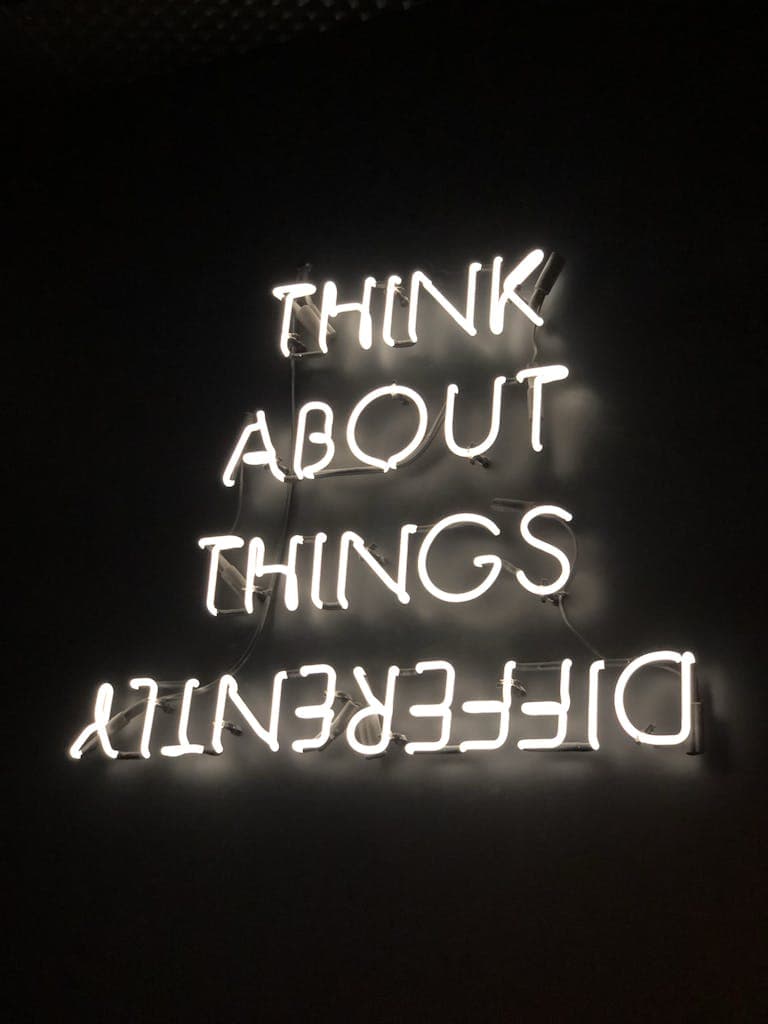Are you standing at the starting line of a new challenge, feeling that familiar mix of excitement and dread? You’re not alone. As someone who’s jumped into countless new skills and projects over the years, I’ve experienced that rollercoaster of emotions more times than I can count. The good news? It’s not your abilities that determine your success—it’s your mindset.
In fact, research from Stanford University shows that students with a growth mindset outperform those with a fixed mindset by nearly 30% when facing difficult challenges! That’s huge! And the best part is that mindset is something we can actively change. In 2025, with information overload and constant pressure to master new skills quickly, these mental shifts are more important than ever.
Let’s explore 10 simple but powerful mindset shifts that can completely transform how you approach challenges as a beginner. I’ve personally used each of these to overcome obstacles in everything from learning how to implement artificial intelligence workflows to improving my public speaking skills. These aren’t just theoretical concepts—they’re practical tools that have made all the difference in my learning journey.

The Power of “Yet” – Embracing a Growth Mindset
I remember staring at lines of code that made absolutely no sense to me, thinking “I don’t understand this.” That thought pattern kept me stuck for weeks until I made one tiny but significant change: I started adding the word “yet” to the end of my negative statements.
“I don’t understand this… yet.”
This simple addition completely transformed my approach. Instead of hitting a wall, I was looking at a door that just needed the right key to open. This is the essence of what psychologist Carol Dweck calls a “growth mindset” – the belief that your abilities can be developed through dedication and hard work.
When I embraced this mindset shift, my learning accelerated dramatically. I stopped avoiding difficult problems and started seeking them out as growth opportunities. The frustration didn’t disappear completely (let’s be real, learning hard things is still hard!), but it no longer signaled a dead end – just a detour on the path to mastery.
Try this: Next time you catch yourself saying “I can’t,” add “yet” to the end of the sentence. Notice how it instantly transforms the statement from a permanent limitation to a temporary challenge. Your brain actually processes these statements differently, and over time, this tiny linguistic shift can rewire how you approach learning entirely!
Reframing Failure as Feedback
I used to have a sticky note on my computer that read “FAIL = First Attempt In Learning.” Cheesy? Absolutely. Effective? You bet! The greatest mindset shift I’ve ever made was reconstructing my relationship with failure.
For years, I treated every mistake as evidence that I wasn’t cut out for whatever I was trying to learn. Each error felt personal, like a judgment of my worth rather than just a normal part of the learning process. This perspective made me avoid risks and stick to what I knew I could do well.
Everything changed when I started viewing failures as valuable data points instead. That time I completely bombed my first presentation to a client? It taught me more about effective communication than any book ever could. The website I built that crashed immediately? Led me to understand server limitations in a way I never would have otherwise.
The most successful people I know don’t fail less—they just extract more value from each failure. Thomas Edison famously said about his thousands of unsuccessful attempts at creating the light bulb: “I have not failed. I’ve just found 10,000 ways that won’t work.”
Try keeping a “failure journal” where you record what went wrong and, more importantly, what you learned from it. After a few weeks, you’ll start seeing patterns and insights that transform these moments from sources of shame into valuable stepping stones toward mastery.
Breaking Down Overwhelming Tasks into Manageable Steps
When I first decided to run a marathon, I nearly quit before starting. Twenty-six miles seemed impossible! I could barely run around the block without getting winded. The gap between where I was and where I needed to be felt insurmountable.
The game-changer was breaking this massive goal into tiny, almost ridiculously small steps. I didn’t focus on running 26 miles. I focused on running for 10 minutes without stopping. Then 15. Then 20. Before I knew it, I was running 5 miles, then 10, and eventually, yes, all 26.2!
Our brains get overwhelmed when facing huge challenges. This triggers our fight-or-flight response, making us more likely to procrastinate or give up entirely. But small steps feel manageable, giving us little hits of dopamine as we achieve each one, fueling our motivation to continue.
I now apply this approach to everything I learn. Learning Spanish? I don’t focus on becoming fluent—I focus on learning five new words today. Writing a book? I don’t think about all 300 pages—I focus on writing 500 words this morning.
Create what I call “success snowballs”—tasks so small you can’t fail at them. Then let the momentum of these small wins carry you forward. This approach transforms the paralyzing question “How will I ever do this?” into the empowering question “What’s the smallest step I can take right now?”
Cultivating Curiosity Over Judgment
My daughter taught me this mindset shift better than any teacher could have. Watching her learn to walk was eye-opening. When she fell down (which happened constantly), she never thought, “I’m bad at walking” or “Maybe walking isn’t for me.” She simply got up, giggled, and tried again with complete curiosity about what might happen next.
As adults, we replace that natural curiosity with harsh self-judgment. “I’m terrible at this” or “I should be better by now” are thoughts that create emotional resistance to learning. This judgment triggers our brain’s threat response, literally making it harder to form new neural connections.
I’ve trained myself to replace judgment with curiosity by asking different questions. Instead of “Why am I so bad at this?” I ask “What’s happening here that I don’t understand yet?” Instead of “This is too hard,” I ask “What would make this easier to approach?”
This shift from evaluation to exploration creates psychological safety for your brain. When you’re curious, you’re open to new information and more willing to experiment with different approaches. You become a scientist of your own learning rather than a harsh critic.
Next time you feel that judgment creeping in, try asking “I wonder why…?” or “What if I…?” questions instead. You’ll be amazed at how quickly this transforms frustration into fascination.
Embracing Discomfort as a Sign of Growth
For years, I misinterpreted the discomfort of learning as a warning sign. If something felt difficult or uncomfortable, I assumed I was doing something wrong or that it wasn’t for me. This led me to quit countless pursuits just as they were getting interesting.
My perspective completely changed when one of my mentors told me something profound: “If you’re not feeling awkward, you’re not learning anything new.” This simple insight helped me recognize that discomfort isn’t a bug in the learning process—it’s a feature!
Neuroscience confirms this. That feeling of mental strain when learning something new is literally your brain forming new neural pathways. It’s the sensation of growth happening in real time! Understanding this transformed my relationship with the inevitable awkward phase of learning any new skill.
Now when I feel that uncomfortable sensation—whether it’s the confusion of learning a new software program or the embarrassment of speaking a new language poorly—I think “Ah, there’s the feeling of my brain growing” instead of “This feels awful, I should stop.”
Try keeping a “discomfort diary” for a week. Note when you feel uncomfortable while learning and what specific sensations you experience. Over time, you’ll start recognizing these feelings not as threats but as familiar companions on the path to mastery.
Practicing Self-Compassion During Difficult Learning Phases
I used to be my own worst drill sergeant when learning something new. I’d push myself relentlessly, criticize every mistake, and hold myself to impossibly high standards. I thought this harsh approach would motivate me to improve faster. Boy, was I wrong!
Research by Dr. Kristin Neff has shown that self-compassion—treating yourself with the same kindness you’d offer a good friend—actually leads to greater resilience and learning outcomes than harsh self-criticism. This completely contradicted my belief that being tough on myself was the path to excellence.
I remember struggling with a particularly difficult concept in a statistics class. After days of frustration and negative self-talk (“everyone else gets this, what’s wrong with me?”), I decided to try a different approach. I spoke to myself as I would to a friend: “This is really challenging material. It’s okay that you’re finding it difficult. Let’s take a break and try a different approach.”
The relief was immediate. My stress levels dropped, and interestingly, I was able to understand the concept much more quickly once I removed the additional burden of self-criticism.
When you’re learning something new, try placing a hand on your heart when you make a mistake and saying, “This is a moment of difficulty. Many people struggle with this. How can I be kind to myself right now?” This simple practice can interrupt the self-criticism cycle and create space for actual learning to occur.
Adopting a Process-Oriented Rather Than Outcome-Oriented Approach
I’ve always been obsessed with outcomes. Get the A. Win the contest. Reach the goal weight. While this focus drove me to achieve certain results, it also made me miserable along the way and vulnerable to giving up when progress wasn’t immediate.
The shift to process orientation was slow but transformative. Instead of fixating on becoming a published author (outcome), I focused on writing 500 words daily (process). Instead of obsessing over weight loss (outcome), I committed to preparing healthy meals and exercising regularly (process).
The magic of this approach is that it puts your focus on the things you can actually control. You can’t control whether your book becomes a bestseller, but you can control whether you write consistently. You can’t control how quickly your body responds to exercise, but you can control showing up for your workouts.
When I made this shift, something unexpected happened—I actually started enjoying the journey rather than just enduring it for the sake of the destination. And ironically, I began achieving better outcomes because I was fully engaged in the process rather than anxiously checking how far I had to go.
Try setting process goals alongside your outcome goals. If you want to learn Spanish (outcome), commit to 15 minutes of practice daily (process). Then celebrate your consistency rather than just your progress. This creates sustainable motivation that can carry you through the inevitable plateaus in any learning journey.
Leveraging the Beginner’s Mindset as an Advantage
For too long, I saw being a beginner as something to hide or overcome as quickly as possible. I wanted to appear competent and knowledgeable, even when I wasn’t. This led me to avoid asking “stupid questions” or trying new approaches that might make me look inexperienced.
What a mistake that was! I’ve come to understand that the beginner’s perspective is actually a powerful asset. Beginners see possibilities that experts have learned to filter out. They question assumptions that specialists take for granted. Some of the most innovative solutions come from people new to a field precisely because they aren’t constrained by “the way things are done.”
When I was learning video editing, my lack of formal training initially made me self-conscious. But because I didn’t know the “rules,” I experimented with unconventional angles and lighting. To my surprise, these experiments led to some of my most creative work—shots that more experienced videographers complimented specifically because they broke conventional patterns.
Now when I approach something new, I intentionally preserve and leverage my beginner’s perspective. I ask the “obvious” questions. I try approaches that might seem naïve. I embrace my lack of knowledge as a form of freedom rather than a limitation.
Try introducing yourself as a beginner with genuine enthusiasm rather than apology. “I’m new to this and really excited to learn!” opens doors and invites support in a way that trying to fake expertise never can.
Building a Supportive Community for Accountability and Encouragement
Learning in isolation was one of my biggest mistakes for years. I believed the myth of the self-made success, thinking I needed to figure everything out on my own. This approach not only made learning harder—it made it lonelier and less enjoyable.
Everything changed when I joined a writers’ group while working on my first book. Suddenly, I had people who understood exactly what I was going through, could offer specific advice for my challenges, and noticed progress I was too close to see. The accountability of our weekly meetings kept me producing pages even when motivation lagged.
Research backs this up: studies show that we’re more likely to stick with difficult tasks when we have social support. Our brains are wired for connection, and learning is fundamentally a social activity. Even Einstein, often portrayed as a lone genius, was part of vibrant intellectual communities throughout his career.
This doesn’t mean you need a formal class or group. Sometimes it’s just a “learning buddy” or an online community of fellow beginners. The key is having people who understand your goals and can offer both support and helpful feedback.
Be intentional about creating this community. Reach out to others learning similar skills. Join forums or social media groups focused on your area of interest. Schedule regular check-ins with an accountability partner. The quality of your learning environment profoundly affects the quality of your learning experience.
Celebrating Progress, Not Just Achievement
One of my clients once told me she hadn’t “accomplished anything” in her first month of learning web development. When I asked for details, it turned out she had learned HTML basics, created her first webpage, and started understanding CSS—all from zero prior knowledge! Yet because she hadn’t built a complete website (her ultimate goal), she discounted all that progress.
This all-or-nothing thinking is a motivation killer. When we only celebrate reaching the finish line, we create vast stretches of perceived “failure” between starting points and endpoints. This makes the journey feel longer and harder than it needs to be.
I’ve learned to create “progress rituals”—small ways to acknowledge and celebrate movement forward, no matter how incremental. Completed my first week of consistent practice? That deserves recognition. Understood a concept that confused me last week? Time for a small celebration.
These celebrations don’t need to be elaborate. Sometimes it’s just taking a moment to consciously acknowledge progress in a journal. Other times it might be sharing the win with a friend or treating yourself to a small reward. The point is to train your brain to notice and value progress, not just achievement.
Try creating a visual progress tracker for your learning journey—a chart, a jar of marbles, or digital badges. Make your progress visible and celebrate each indicator of forward movement. This creates a positive feedback loop that fuels continued effort and enjoyment.

The Journey Forward
These 10 mindset shifts have completely transformed how I approach new challenges, turning what once felt like daunting obstacles into exciting adventures in growth. While they may seem simple on the surface, their consistent application can profoundly change your experience as a beginner in any field.
Remember, changing your mindset is itself a skill that takes practice. Don’t expect to master all these shifts at once. Start with the one that resonates most strongly with you, practice it consciously for a few weeks, then add another. Over time, these new thought patterns will become your default approach to challenges.
I’d love to hear which of these mindset shifts resonates most with you or if you have additional ones that have helped in your learning journey. The beauty of growth is that we can all learn from each other’s experiences!
What challenge will you approach differently after reading this? Whatever it is, remember that the way you think about the challenge is often more important than the challenge itself. Your mindset isn’t just a minor factor in your success—it’s often the deciding factor.






2 Comments
Comments are closed.